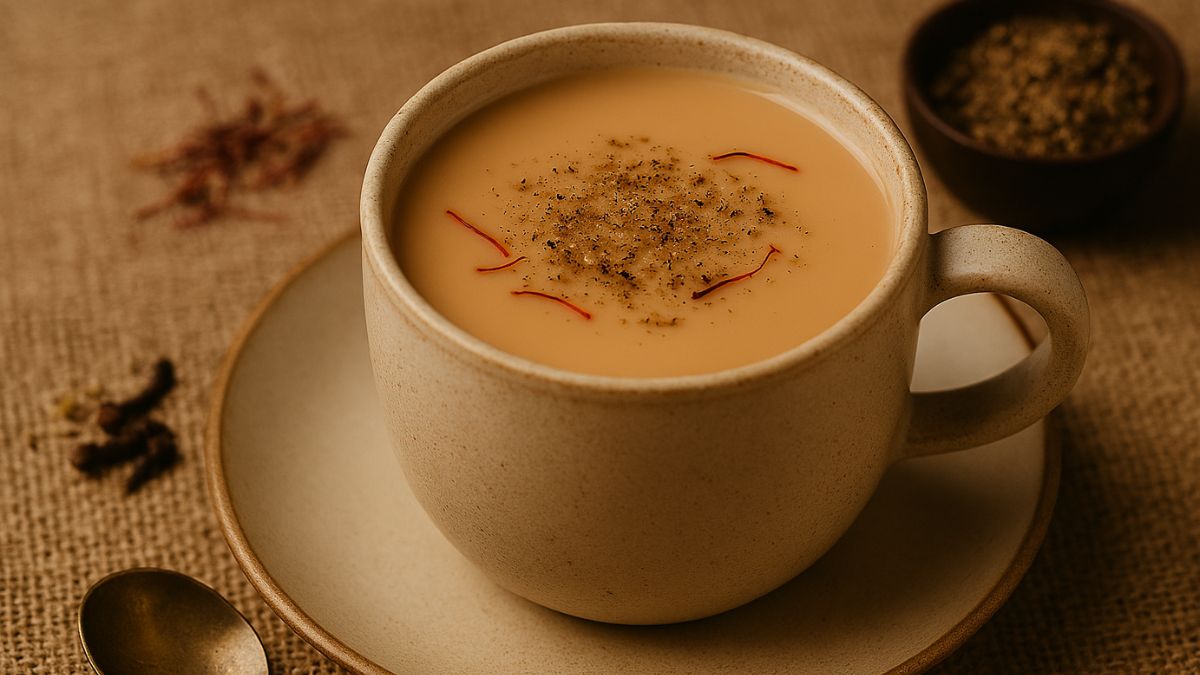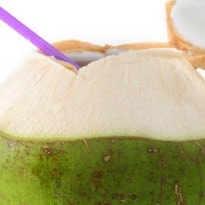All of the coconut is trending and for good reason. An average coconut contains around 50% water, 35% coconut oil, 10% carbohydrates and 3.5% protein. A glass of coconut water works as a quick-fix for instant energy and keeps you hydrated. Coconut oil is famous for the bounty of beauty benefits that it has to offer. According to health experts, coconut consumption helps in better digestion, relieving stress, strengthening immunity, combating high sugar levels and in maintaining healthy skin and lustrous hair. Sally Norton, a well-known weight loss consultant, shares some tips on how you can addcoconut to your daily diet. (More: 10 Reasons to Drink More Coconut Water)
Coconut Yoghurt: This is a fairly new dairy-free alternative, great for those who are lactose-intolerant and who fancy a change from the soya varieties. It is much higher in fat than both natural dairy yoghurt and soya yoghurts, but also much lower in carbohydrates.
Coconut Sugar: This can be used instead of sugar in baking. It may be a healthier alternative to traditional granulated sugar, however it is still an energy-dense food-type which should only be used on special occasions.Coconut Oil: This is becoming increasingly popular and can be used for roasting and baking. Not to mention the goodness of coconut oil for maintaining lustrous hair.Coconut Cream: The cream derived from coconut is slightly thick in its consistency as compared to coconut milk. Widely used in the cooking arena and popularly used in delicacies like pina colada, coconut cream can also be used a perfect natural face, body and hair mask
Coconut Water: The is now being marketed as a highly hydrating fluid. It has less sugar than fruit juices and more minerals such as potassium, sodium, magnesium and calcium. These properties are great as a post-workout drink if you've only been doing moderate exercise, but there isn't enough protein or carbohydrate if you're undergoing vigorous exercise of over one hour. (More - Coconut Water: Health or Hype?)
Fresh Coconut as a Snack: Fresh coconut flesh is delicious, full of vitamins and minerals and goes really well in a smoothie. Enjoy as a snack but go easy on your portion sizes - a typical snack pack (100g) of fresh coconut pieces contains 271 kcal compared to just 50 kcal in a 100g fresh fruit pot.Inputs from IANS and femalefirst.co.uk.
Coconut Yoghurt: This is a fairly new dairy-free alternative, great for those who are lactose-intolerant and who fancy a change from the soya varieties. It is much higher in fat than both natural dairy yoghurt and soya yoghurts, but also much lower in carbohydrates.
Coconut Sugar: This can be used instead of sugar in baking. It may be a healthier alternative to traditional granulated sugar, however it is still an energy-dense food-type which should only be used on special occasions.Coconut Oil: This is becoming increasingly popular and can be used for roasting and baking. Not to mention the goodness of coconut oil for maintaining lustrous hair.Coconut Cream: The cream derived from coconut is slightly thick in its consistency as compared to coconut milk. Widely used in the cooking arena and popularly used in delicacies like pina colada, coconut cream can also be used a perfect natural face, body and hair mask
Coconut Water: The is now being marketed as a highly hydrating fluid. It has less sugar than fruit juices and more minerals such as potassium, sodium, magnesium and calcium. These properties are great as a post-workout drink if you've only been doing moderate exercise, but there isn't enough protein or carbohydrate if you're undergoing vigorous exercise of over one hour. (More - Coconut Water: Health or Hype?)
Fresh Coconut as a Snack: Fresh coconut flesh is delicious, full of vitamins and minerals and goes really well in a smoothie. Enjoy as a snack but go easy on your portion sizes - a typical snack pack (100g) of fresh coconut pieces contains 271 kcal compared to just 50 kcal in a 100g fresh fruit pot.Inputs from IANS and femalefirst.co.uk.
Advertisement












